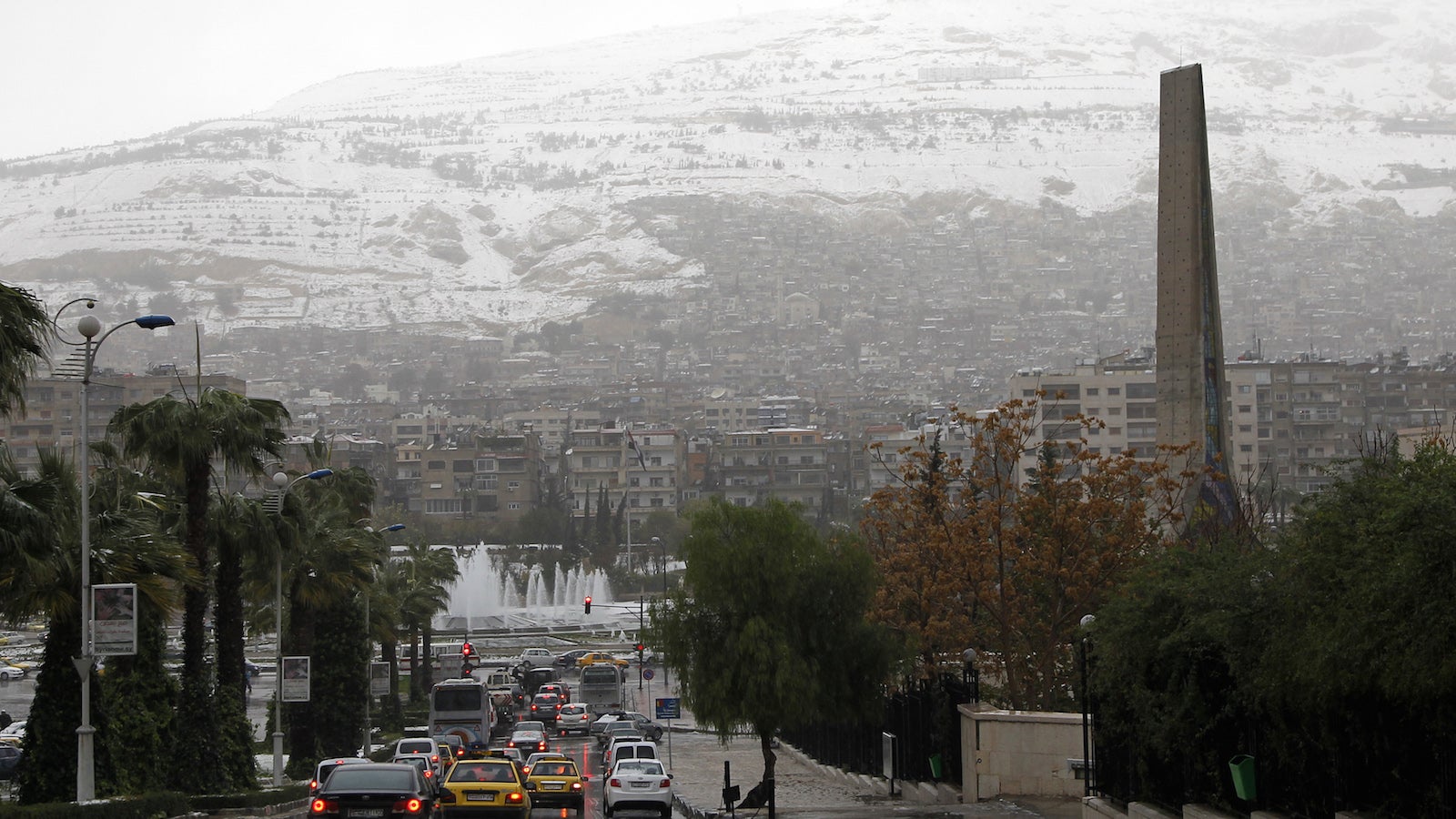Syrian refugees are offering Arabic lessons to students abroad through Skype
This article has been updated.


This article has been updated.
On a recent evening, I logged onto Skype and jumped into a conversation with a chain-smoking, friendly young Syrian refugee in Beirut. It cost me $15 an hour.
I was trying out Natakallam, (”We Speak”), a new online platform that pairs students who want to practice their conversational Arabic with Syrian refugees in Lebanon.
To get started, you fill out a simple questionnaire on Natakallam’s website, then specify your availability in a shared spreadsheet. Classes can be bought singly or in bundles. A Natakallam administrator looks over each prospective student’s level, goals, general interests and preferred schedule, and matches him or her with a conversation partner.
My tutor, Hosam, 31, was from Damascus. He had a background in law, journalism, and culture writing—he said he’d been able to publish more freely after arriving in Lebanon in May 2014, than in Assad’s Syria. Almost immediately, we plunged into a conversation about politics and literature.
Natakallam has seen an explosion of success in recent weeks. As of writing, the program had already signed up 50 students (its target for December 2015) and is scrambling to hire more Syrian tutors. Professors at the US universities of George Washington, Swarthmore and North Carolina have expressed interest in incorporating Natakallam into Arabic classes.
“The response has been quite overwhelming,” says Aline Sara, one of the platform’s founders, to Quartz. “We weren’t fully prepared for this and we’re trying to keep up with the demand.”
Given continued conflict in the Middle East over the last four years, many Arabic and study-abroad programs in the region have had to relocate or close. Instead of traveling to Cairo, Egypt, or Damascus, Syria—historic centers of Arabic culture—Western students of Arabic now head to more stable, peripheral countries such as Oman or Morocco.
Over the same period, 4 million Syrians have fled their country due to war, making up one of the world’s largest refugee populations. About one in four are in Lebanon, where none have the legal right to work, and are forced to live hand-to-mouth in refugee camps.
“In Lebanon Syrians are struggling to get a work permit. Many are employed on the black market, underpaid and in difficult conditions, in positions that are not necessarily in line with their skills and qualifications” says Sara. She emphasizes that Natakallam is not “an aid project.” The Syrian tutors “have an income and a service to provide,” she says.
Sara, 30, is a Lebanese-American living between Paris and Beirut, where she has worked in journalism and the non-profit sector. Her cofounders are fellow graduates of Columbia University’s School of International and Public Affairs (SIPA): Anthony Guerbidjian, 28, and Reza Rahnema, 27. The trio recruit tutors through Natakallam’s partner, the NGO Sawa for Development and Aid, which seeks to help Syrian refugees in Lebanon. About 70% of Natakallam’s profits go to its tutors, and the remainder funds the project’s operations.
The idea for the platform was first developed as part of the Columbia Venture Competition; the project is a contender for SIPA’s dean’s challenge, and has already received a small grant. Otherwise Sara and her collaborators have funded the project themselves. ”We’ve been so busy trying to keep up with sign ups, recruitment and various challenges related to the online sessions,” says Sara, “that we have invested almost no time in fundraising.”
The project has had to contend with the frequent electricity cuts in Beirut and spotty internet. Scheduling lesson times that work for, say, a student in California and a tutor in Lebanon, can be a challenge. But Sara says she tries to make students aware of these and other constraints in the lives of refugees; there is a hotline to call in case of technical difficulties.
Overall, she says, students seem satisfied. Natakallam is expanding to include Syrian refugees in Paris, Berlin and Cairo. The idea of creating portals for other Arab refugees—Iraqis, Yemenis—and students interested in practicing their dialects has also been floated.
In my hour with Hosam, we inevitably talked about Syria, why its peaceful upraising took the turn it did and what the world could do to help. Hosam told me he enjoys talking to people from many different countries and that he feels that part of his mission is to educate them about Syria, countering stereotypes that all Syrians are extremists or that they are all victims.
“I don’t want people to look down on me,” he said matter-of-factly. “I got out of Syria to continue my life, not to be humiliated or to ask for help.”
An earlier version of this article stated that Natakallam was a nonprofit. It has not yet been registered as such.